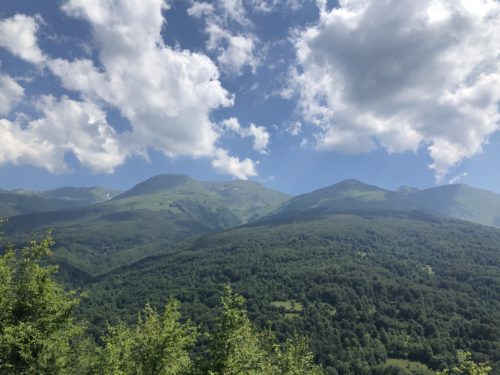Biti e Poshtme, Kosovo, 11 July 2020. Sharr National Park in Kosovo is facing the threat of drying up rivers due to the construction of several hydropower plants. Although residents have opposed these projects, their construction has advanced, in the Lepenc River. In a meeting with residents of Biti e Poshtme village, representatives of EcoAlbania, GAIA Kosovo and other local organizations talked about ways to stop these projects. EcoAlbania shared the organization’s experience with rivers in Albania, and the Vjosa River in particular. The meeting was broadcasted live on national television.
Currently, permits for the construction of six hydropower plants on the Lepenc River have been issued by the Energy Regulatory Office (ERO). Although residents have protested against the construction of hydropower plants on the Lepenc River, ERO has continued to issue permits for hydropower plants, and during the meeting moments the construction company was continuing to work on the riverbed.
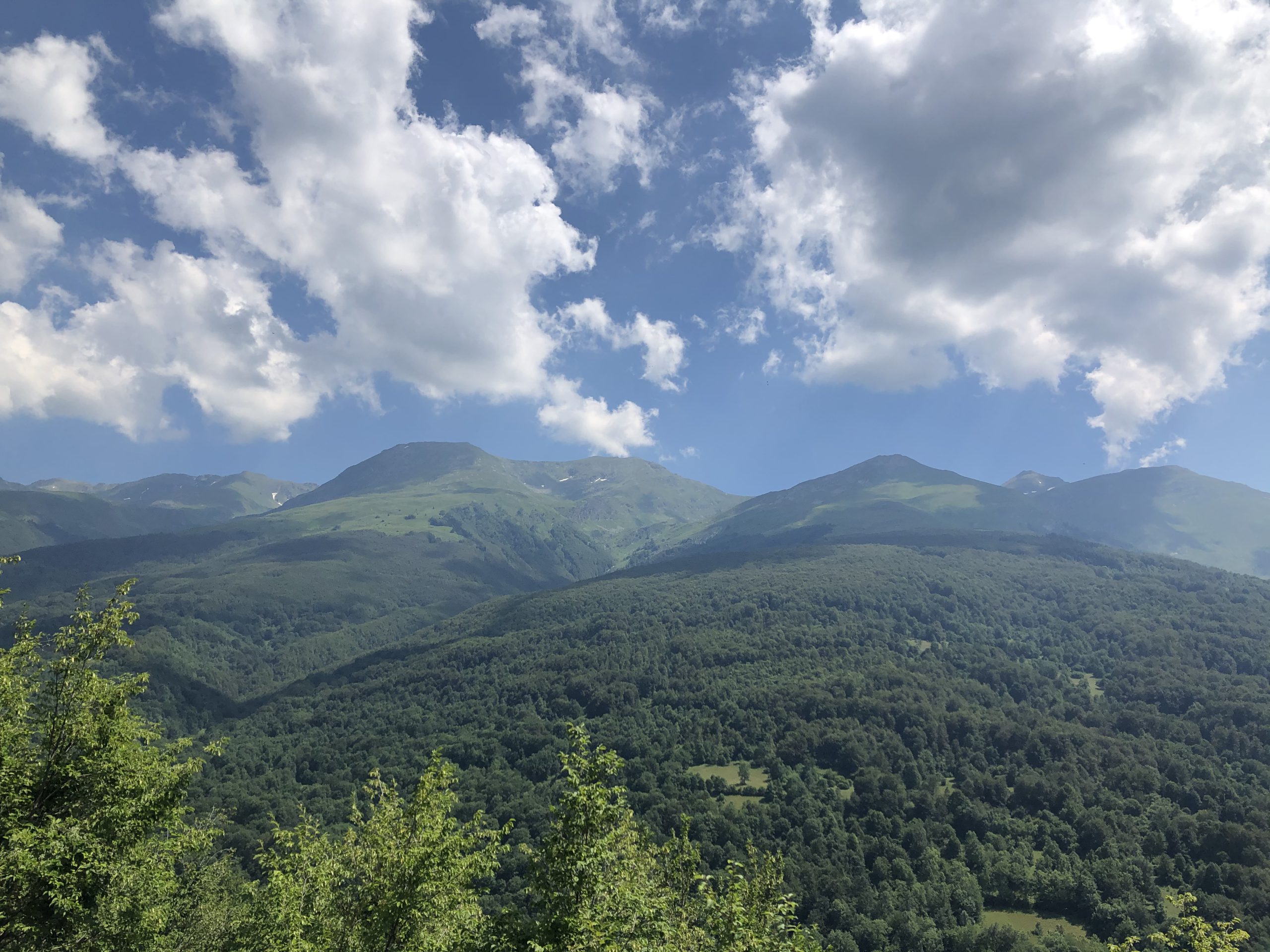
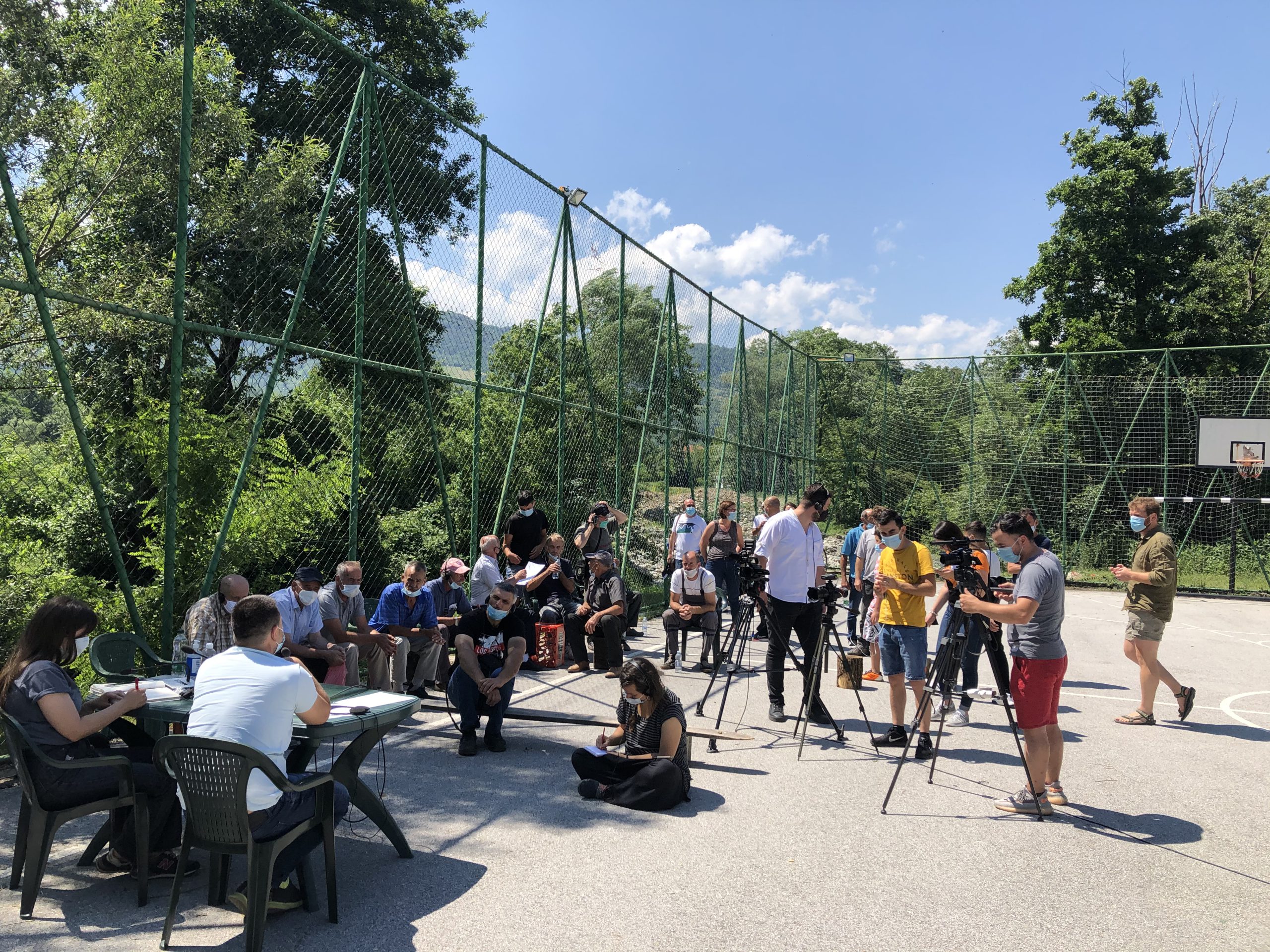
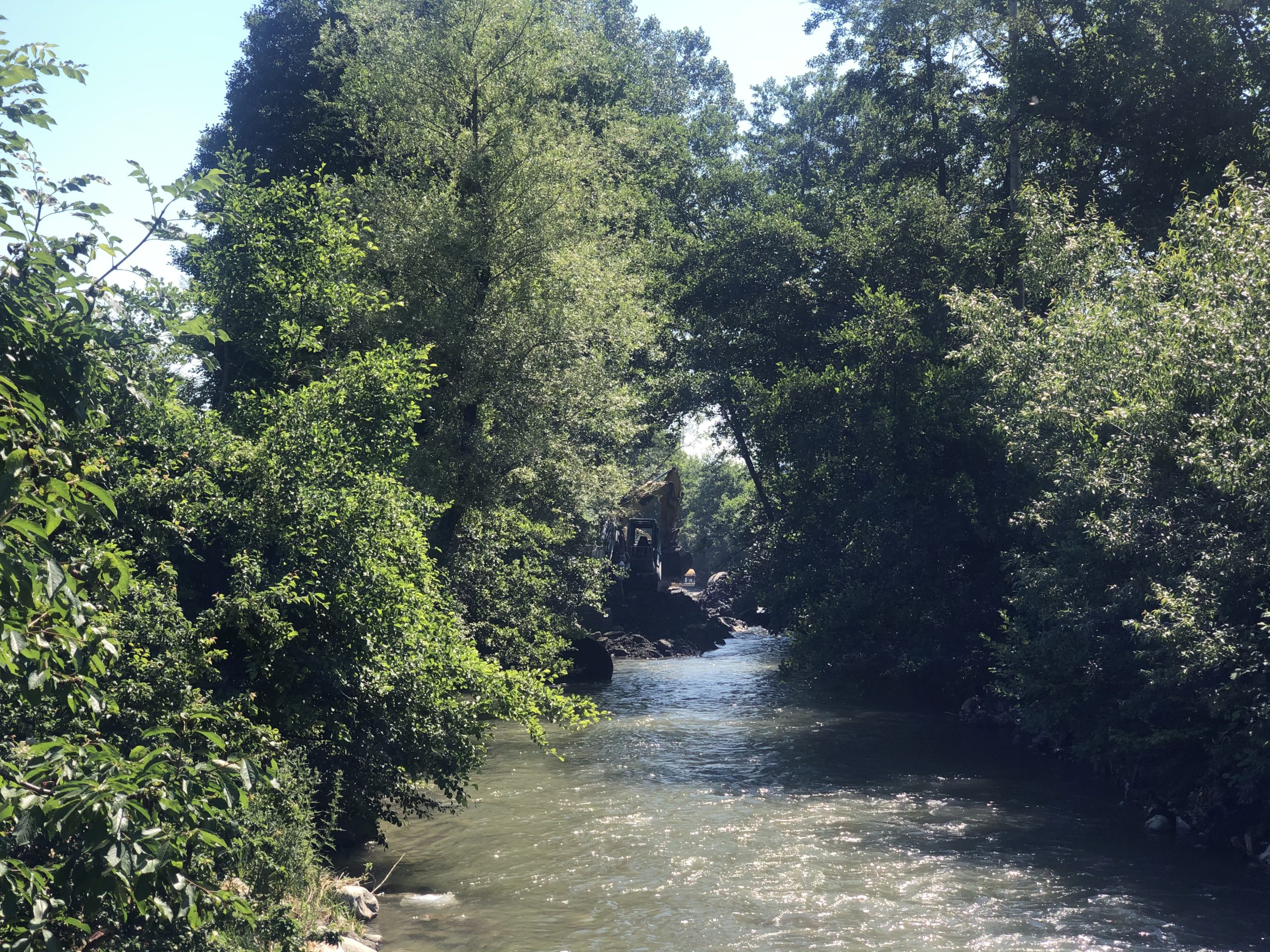
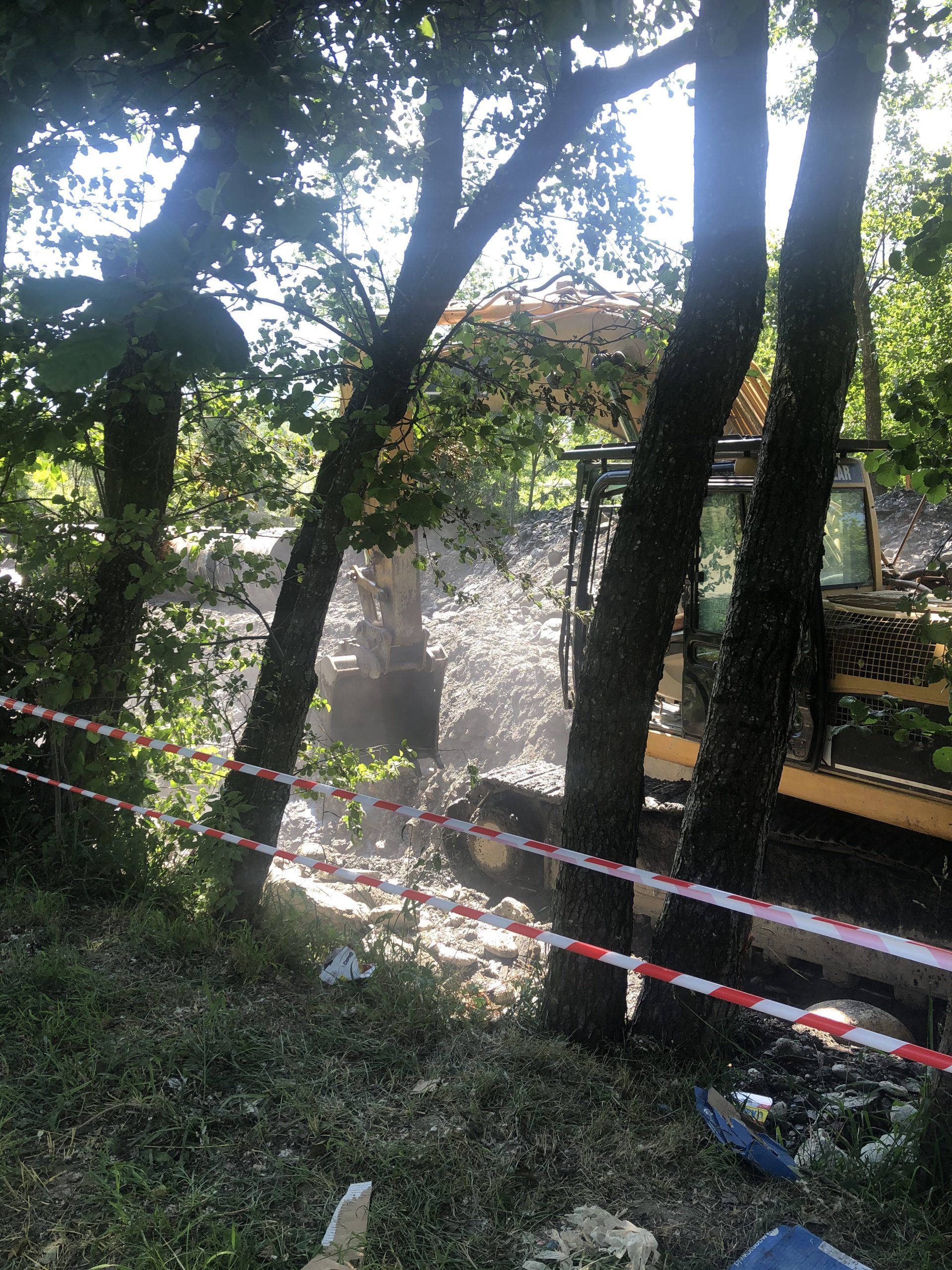
According to residents, the construction of hydropower plants on the Lepenc river, will damage and degrade the environment. Residents are desperated over the fate of their river and asked for help to provide human resources specialized in legal issues. The Executive Director of EcoAlbania, expressed his readiness to help them with legal support from Albania, focused on the negative impacts that HPPs have on the environment. He shared with the residents the long experience with the Vjosa river, and described the current situation with HPPs in Albania and almost throughout all the Balkans.
General information: The Lepenc River is a river that gravitates into the Aegean Sea basin and is a tributary of the Vardar. Lepenci originates on the northern slopes of Sharr Mountain at Oshllaku at 2,212 m. Lepenc in the territory of Kosovo is 53 km long, the basin area is 607 km2, and the average annual flow is 7.9 m3 per second.


